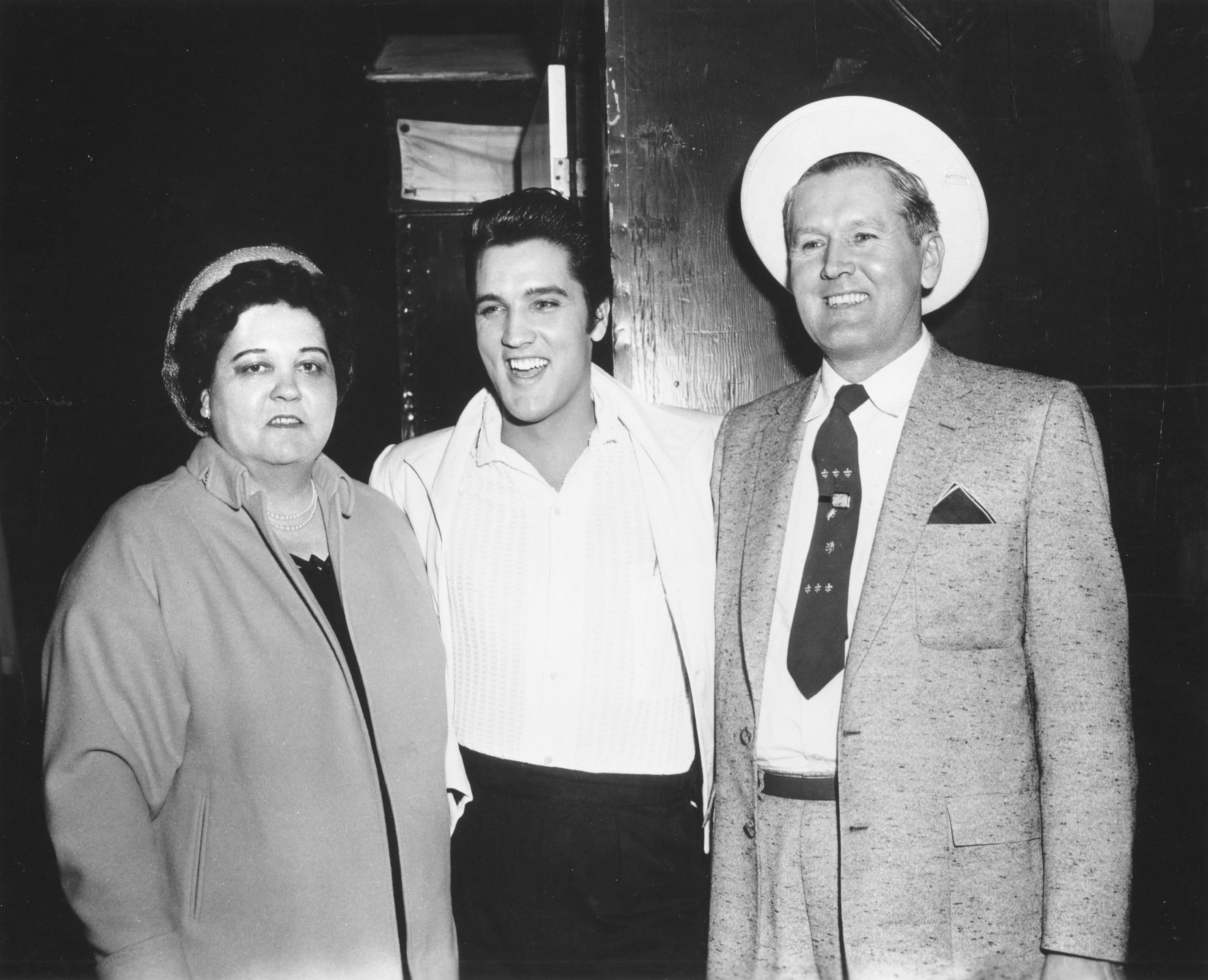Elvis Presley, often hailed as the "King of Rock and Roll," remains an iconic figure whose cultural impact transcends generations. But what about Elvis Presley's ethnicity? His unique blend of heritage not only shaped his identity but also influenced his music, style, and the way he connected with audiences worldwide. Understanding his ethnic background provides deeper insights into his life, career, and enduring legacy. From his humble beginnings in Tupelo, Mississippi, to his rise as a global superstar, Elvis’s roots played a pivotal role in defining who he was. His mixed heritage, which included Scottish, Irish, German, and possibly Native American ancestry, contributed to his distinctive voice and universal appeal.
Elvis’s ethnicity was a reflection of the American melting pot, a blend of diverse cultures and traditions that resonated with millions. His music, heavily influenced by African American blues and gospel, showcased his ability to embrace and celebrate cultural diversity. This fusion of ethnic influences not only defined his sound but also broke racial barriers in the music industry. As we delve into Elvis Presley’s ethnicity, we uncover the fascinating story of a man who bridged divides and left an indelible mark on the world.
Exploring Elvis Presley’s ethnicity is not just about tracing his family tree; it’s about understanding how his heritage shaped his journey. From his childhood in the Deep South to his global fame, his ethnic background was a cornerstone of his identity. By examining his roots, we gain a richer appreciation of his artistry and the cultural significance he brought to the world stage. In this article, we’ll take a closer look at his biography, personal details, and the cultural influences that defined his life and career.
Read also:Vocalist Maroon 5 The Journey Of Adam Levine And His Iconic Band
Table of Contents
- Biography: The Life and Times of Elvis Presley
- Personal Details and Bio Data
- What Is Elvis Presley's Ethnicity? A Deep Dive
- How Did Elvis Presley's Ethnicity Influence His Music?
- Exploring Elvis Presley's Family Tree: What Do We Know?
- How Did Elvis Break Racial Barriers in Music?
- What Is the Legacy of Elvis Presley's Ethnic Diversity?
- Conclusion: Celebrating Elvis Presley's Cultural Impact
Biography: The Life and Times of Elvis Presley
Elvis Aaron Presley was born on January 8, 1935, in Tupelo, Mississippi, to Vernon and Gladys Presley. His early life was marked by financial struggles, as his family faced poverty during the Great Depression. Despite these challenges, Elvis’s love for music blossomed at a young age, inspired by the gospel songs he heard in church and the rhythm and blues emanating from nearby juke joints. His first big break came in 1954 when he recorded "That's All Right" at Sun Studio in Memphis, Tennessee, a moment that would change the course of music history.
Elvis's career skyrocketed in the mid-1950s, earning him the title "King of Rock and Roll." His unique sound, a blend of country, blues, and gospel, captivated audiences and redefined popular music. Hits like "Heartbreak Hotel," "Hound Dog," and "Jailhouse Rock" cemented his status as a cultural icon. Beyond music, Elvis also made a name for himself in Hollywood, starring in 33 films and becoming a global superstar. His charisma, voice, and dynamic performances left an indelible mark on the entertainment industry.
Despite his success, Elvis faced personal challenges, including struggles with fame, health issues, and the pressures of maintaining his legacy. He passed away on August 16, 1977, at the age of 42, leaving behind a legacy that continues to inspire musicians and fans alike. Today, Elvis Presley is remembered not only for his contributions to music but also for his role in shaping American culture and breaking down racial barriers in the industry.
Personal Details and Bio Data
| Full Name | Elvis Aaron Presley |
|---|---|
| Date of Birth | January 8, 1935 |
| Place of Birth | Tupelo, Mississippi, USA |
| Date of Death | August 16, 1977 |
| Place of Death | Memphis, Tennessee, USA |
| Occupation | Singer, Actor, Cultural Icon |
| Genres | Rock and Roll, Country, Gospel, Blues |
| Years Active | 1954–1977 |
| Notable Works | "Heartbreak Hotel," "Hound Dog," "Jailhouse Rock," "Can't Help Falling in Love" |
What Is Elvis Presley's Ethnicity? A Deep Dive
Elvis Presley’s ethnicity is a fascinating tapestry of cultural influences that shaped his identity and career. His father, Vernon Presley, and mother, Gladys Presley, were of predominantly Scottish and Irish descent, with some German ancestry as well. This European heritage was a significant part of his family’s history, tracing back to immigrants who settled in the American South. Additionally, there have been claims of possible Native American ancestry in Elvis’s lineage, though these remain unverified and speculative.
Understanding Elvis Presley’s ethnicity provides valuable context for his connection to the diverse musical traditions of the South. Growing up in Tupelo, Mississippi, a region rich in African American culture, Elvis was exposed to blues, gospel, and rhythm and blues from an early age. His Scottish-Irish roots, combined with these influences, created a unique blend that defined his musical style. This fusion of ethnic and cultural elements not only set him apart as an artist but also allowed him to bridge gaps between different communities through his music.
Elvis’s ethnicity also played a role in his public image and the way he was perceived by audiences. His mixed heritage, reflective of the American melting pot, made him a relatable figure to people from all walks of life. By embracing his roots and incorporating diverse influences into his work, Elvis became a symbol of unity and cultural exchange. This aspect of his identity continues to resonate with fans and scholars alike, highlighting the profound impact of his ethnic background on his legacy.
Read also:Exploring Naughty America Video A Comprehensive Guide
How Did Elvis Presley's Ethnicity Influence His Music?
Elvis Presley’s ethnicity was a driving force behind his groundbreaking contributions to music. His Scottish-Irish heritage introduced him to the storytelling traditions of folk and country music, while his exposure to African American blues and gospel in the Deep South shaped his vocal style and emotional delivery. This unique combination allowed him to create a sound that was both innovative and deeply rooted in cultural history.
One of the most significant ways Elvis’s ethnicity influenced his music was through his ability to blend genres. His early recordings at Sun Studio, such as "That's All Right," showcased a seamless fusion of country, blues, and gospel. This cross-genre approach was revolutionary at the time and helped pave the way for the birth of rock and roll. By drawing from his diverse cultural influences, Elvis broke down musical barriers and created a new genre that appealed to a wide audience.
Moreover, Elvis’s ethnicity played a crucial role in his ability to connect with marginalized communities. His admiration for African American musicians like B.B. King and Arthur Crudup was evident in his performances, which often paid homage to their work. This mutual respect and cultural exchange helped bridge racial divides in the music industry and beyond. Elvis’s ethnic diversity not only enriched his artistry but also made him a powerful advocate for inclusivity and unity through music.
Key Musical Influences from Elvis’s Ethnic Background
- Gospel music from his Scottish-Irish roots
- Blues and rhythm and blues from African American traditions
- Country music storytelling influenced by his Southern upbringing
Exploring Elvis Presley's Family Tree: What Do We Know?
Elvis Presley’s family tree is a rich tapestry of European and American influences, offering a glimpse into the cultural heritage that shaped his life and career. His paternal lineage traces back to Andrew Presley, a Scottish immigrant who arrived in the American colonies in the 1740s. The Presleys settled in the South, where they became farmers and laborers, passing down traditions that would later influence Elvis’s music and values.
On his mother’s side, Elvis’s ancestry includes Irish and German roots, adding further diversity to his ethnic background. Gladys Presley’s family, like many in the region, had deep ties to the Southern way of life, including its music and religious practices. These influences were evident in Elvis’s early exposure to gospel music and his lifelong devotion to faith.
While Elvis’s European ancestry is well-documented, there have been persistent rumors of Native American heritage in his family tree. Some accounts suggest that his great-great-grandmother, Morning Dove White, was of Cherokee descent. However, these claims remain unverified, as genealogical records do not provide conclusive evidence. Regardless, the idea of Native American ancestry adds another layer to the complexity of Elvis Presley’s ethnicity and underscores the diverse cultural influences that defined his identity.
How Did Elvis Break Racial Barriers in Music?
Elvis Presley’s ethnicity and upbringing in the racially segregated South positioned him uniquely to challenge the status quo in the music industry. At a time when racial divisions were deeply entrenched, Elvis’s music became a bridge between black and white audiences, breaking down barriers and fostering cultural exchange. His ability to blend African American musical traditions with his own European heritage created a sound that transcended racial lines and united listeners across the country.
One of the most significant ways Elvis broke racial barriers was through his performances. His energetic stage presence and distinctive voice drew heavily from African American blues and gospel artists, earning him both admiration and criticism. While some accused him of appropriating black music, others recognized his genuine respect for the genre and its pioneers. Elvis often credited African American musicians like B.B. King and Rufus Thomas as major influences, and he used his platform to amplify their work.
Elvis’s impact extended beyond music to the broader cultural landscape. By achieving mainstream success with a sound rooted in black traditions, he challenged societal norms and paved the way for future artists of all races. His legacy as a cultural pioneer remains a testament to the power of music to transcend racial and ethnic divides, making him a symbol of unity and progress.
Ways Elvis Presley Promoted Cultural Unity
- Collaborating with African American musicians and producers
- Performing songs originally written and performed by black artists
- Advocating for inclusivity in the music industry
What Is the Legacy of Elvis Presley's Ethnic Diversity?
Elvis Presley’s ethnic diversity left an indelible mark on American culture and the global music industry. His ability to fuse influences from his Scottish-Irish, German, and African American heritage created a sound that was both innovative and universally appealing. This cultural synthesis not only redefined popular music but also challenged societal norms, making Elvis a symbol of unity and progress during a time of racial segregation.
Today, Elvis’s legacy continues to inspire artists from diverse backgrounds. His story serves as a reminder of the power of cultural exchange and the importance of embracing one’s roots while celebrating the contributions of others. By breaking racial barriers and promoting inclusivity, Elvis set a precedent for future generations of musicians to follow. His impact on genres like rock, pop, and gospel remains evident in the work of countless artists who cite him as a major influence.
Elvis Presley’s ethnicity also underscores the broader narrative of America as a melting pot of cultures. His life and career exemplify how diversity can foster creativity and innovation, leaving a lasting impact on society. As we reflect on his contributions, it’s clear that Elvis’s ethnic diversity was not just a part of his identity but a cornerstone of his enduring legacy.
FAQs About Elvis Presley’s Ethnicity
Did Elvis Presley Have Native American Ancestry?
There have been claims that Elvis Presley had Native American ancestry, particularly through his great-great-grandmother, Morning Dove White, who was allegedly of Cherokee descent. However, these claims remain unverified due to a lack of conclusive genealogical evidence. While the possibility adds intrigue to his heritage, Elvis’s documented ancestry primarily includes

